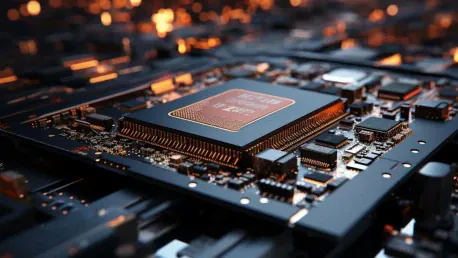The increasing demand for AI computing has spotlighted the global GPU shortage, prompting cloud providers to turn to innovative solutions to keep pace. GPUs are critical for training complex AI models, but they also present significant challenges due to high power consumption, intensive cooling requirements, and a severe supply deficit. With Nvidia’s latest GPUs being fully pre-sold for the next year, cloud providers are looking for alternative solutions to address these issues.
Cloud providers are now investing in custom-designed chips, known as accelerators, to manage specific workloads more efficiently and economically. These custom chips provide faster and more efficient computing solutions while maintaining manageable costs, effectively countering the GPU shortage and helping maintain competitive advantages. Leading companies such as AWS, Google, and Microsoft have been at the forefront of this trend, integrating these innovative chips into their cloud infrastructure.
According to Mario Morales of IDC, custom accelerators offer superior price-performance and price-efficiency ratios, resulting in better returns on investment for cloud infrastructure. AWS and Google have pioneered this approach, with AWS introducing Trainium and Inferentia chips and Google rolling out Tensor Processing Units (TPUs). On the other hand, Microsoft, which entered the custom chip market later, has only recently begun to intensify its efforts.
At its recent Ignite conference, Microsoft unveiled two new custom silicon chips: the Azure Boost DPU and the Azure Integrated HSM. The Azure Boost DPU is designed to optimize data processing through a custom operating system, while the Azure Integrated HSM enhances security by securely managing encryption and signing keys in hardware. Despite these advancements, Microsoft still lags behind its competitors in the Data Processing Unit (DPU) market, where Google and AWS have more robust and established offerings.
Security is an area where custom chips also play a crucial role. Microsoft’s Azure Integrated HSM chip exemplifies how dedicated custom silicon can improve encryption processes, enhancing both latency and scalability. Similarly, AWS’s Nitro system and Google’s Titan chip focus on strengthening security by providing secure roots of trust and mitigating risks of main system CPU firmware modifications.
The broader trend of hyperscalers investing in custom chips is evident, as noted by Alexander Harrowell from Omdia. This strategy is logical for reducing costs and boosting efficiency. As the demand for specialized computing increases, custom chips are becoming central to maintaining competitiveness in the cloud services market.
In summary, cloud providers are increasingly relying on custom chips as an effective solution to GPU shortages, focusing on optimizing performance, improving efficiency, and ensuring robust security. This trend has been shaping the future of cloud computing, driving innovation, and redefining enterprise technology infrastructure. The commitment to custom chips reflects a strategic response to the complex challenges posed by a highly competitive and fast-evolving industry.









